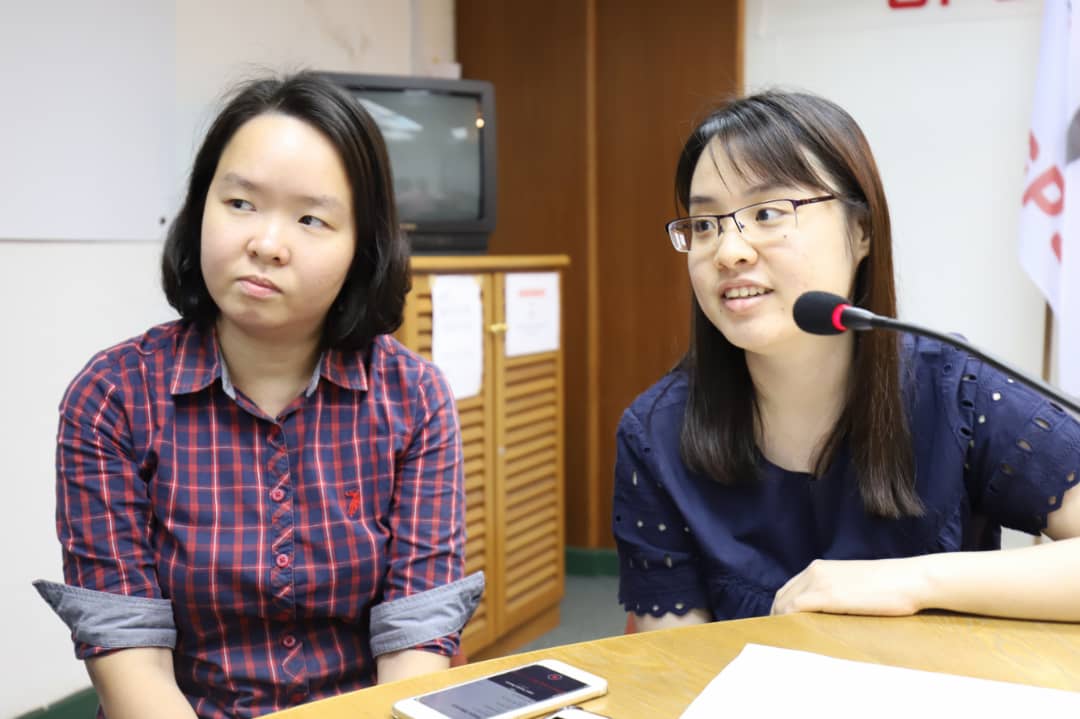The new decade began with two young Chinese women from Sarawak losing their jobs as government doctors, when the Ministry of Health (MOH) did not renew their contracts or give them permanent positions last November, after they completed their two-year mandatory service.
The two Sibu General Hospital contract medical officers in their late 20s — Dr Bong Ing Hui and Dr Wong Woan Hui – lost their jobs even though they had passed part of their specialist postgraduate course in paediatrics and gynaecology respectively. In order to complete their training to be specialists, though, the young women must have worked at a government hospital for at least four years.
Now, they’re forced to look for locum work at private medical centres pending an appeal to MOH. Dr Bong had even turned down a seven-year job contract in the United Kingdom because she wanted to serve her country, not knowing that Malaysia did not require her services.
Their cases, as highlighted by Gabungan Parti Sarawak (GPS) coalition party SUPP, marked Malaysia’s first terminations of young doctors in the public sector, as the government struggles to accommodate an oversupply of doctors in limited vacancies.
Besides the Sarawakian doctors, MOH also let go last November two other contract medical officers from Hospital Sultanah Nora Ismail in Johor and Hospital Tengku Ampuan Afzan in Pahang aged 30 and 32 respectively, after they completed their two-year compulsory service.
The “oversupply” of government doctors occurs partly because MOH’s budget isn’t big enough to hire more health care professionals, even if they are desperately needed, as overworked doctors struggle with a 445 per cent bigger patient load now in the public sector compared to over a decade ago. Analysts say the government’s RM31 billion health budget for 2020 has fallen short of Pakatan Harapan’s (PH) target of 4 per cent of Malaysia’s gross domestic product (GDP).
Dr Bong and Dr Wong, according to Bandar Kuching MP Dr Kelvin Yii, were not under the government’s “common contract system”, where a medical graduate is given a four-year contract for housemanship and compulsory service in the public sector, as the two women had done their housemanship overseas, but completed their mandatory service in Malaysia.
Malaysia’s contract system for government doctors began in December 2016 when medical graduates were about 24 or 25 years old upon starting housemanship. This means that the first batch of about 1,200 contract housemen began their two-year compulsory service as medical officers only in December 2018 or December 2019, depending on how fast they finished their training as junior doctors.
Instead of getting permanent positions, almost half of those medical officers received an extension of contract from December 2019 to December 2021 to fulfill their mandatory government service. These contract medical officers were kept on the UD41 civil service grade, unlike their permanent counterparts who were promoted to UD44 with higher pay.
The wage differential is significant – contract medical officers Dr Wong and Dr Bong reportedly made up to almost RM8,000 a year less than their UD44 colleagues, despite doing the same work. Although Health Minister Dzulkefly Ahmad announced last November that Cabinet has approved MOH’s proposal to promote contract medical, pharmacy and dental officers from UD41 to UD44/43, it’s unknown if the decision has been put into effect yet.
When these millennial doctors finish their compulsory service with the government in December 2021 at age 29 or 30, many are expected to be let go – only a quarter of medical and dental officers will receive permanent posts, SUPP alleged.
What will PH do for these young jobless doctors then? The government can’t simply dismiss them with a vague recommendation to work in the private sector – private hospitals are unlikely to hire them because only specialists are wanted. Sure they can work in pharmaceutical companies or diagnostic labs, but not as doctors.
Too old to start a traditional office career and saddled with student debt running up to RM400,000 (medical school now costs over half a million ringgit), young Malaysian doctors face a bleak future from 2022, just as the 15th general election is due by 2023.
Some 5,000 doctors reportedly enter the system every year, so PH may face the fury of thousands of Malaysian millennials trained as doctors who are jobless, or face the prospect of unemployment, by the time they hit the ballot box. Not to mention parents who had invested all their money, hopes, and dreams into turning their children into rich doctors.
Malaysia’s problem of excessive medical graduates is over a decade old, with a surplus of doctors estimated back in 2006 to start from the year 2009. Barisan Nasional (BN) didn’t deal with the problem then, and the first Mahathir administration may have even inadvertently exacerbated it by allowing numerous medical schools to open in the country since the mid-1990s.
Besides dealing with an 11 per cent graduate unemployment rate and 200,000 jobless graduates, PH must also deal with the race element in the problem of young jobless doctors. Soon after the news broke about the Chinese Sarawakian medical officers who lost their jobs, some chatter on social media took a racial slant.
Familiar complaints of discrimination against minority groups arose, as Malaysians expressed frustration that such problems were happening under PH as previously under BN. Sarawakian ruling politicians, predictably, played the “Malaya First” card. Sarawak’s state election is due by July next year.
If MOH isn’t transparent about the criteria for granting doctors, pharmacists, or dentists permanent positions, perceptions (justified or otherwise) of institutionalised racism and discrimination will stain the public health care system. Government doctors have already complained about the opacity and bias of their performance evaluation system.
It’s unfortunate that the first cases of contract doctors losing their jobs are ethnic Chinese women. In a field dominated by men, MOH must also clarify that women doctors are not discriminated from getting permanent posts in the public sector, especially those who take maternity leave during their training.
Bear in mind that a pregnant teacher successfully sued the government in 2011 for gender discrimination by violating Malaysia’s obligations under the United Nations treaty, the Convention of the Elimination of All Forms of Discrimination against Women (Cedaw).
Skill and merit must be the predominant criteria in the employment of government doctors. There is no room for sexism or Bumiputera quotas in medicine.
While pro-Bumiputera policies may be somewhat justified in other sectors (actually, no, there really isn’t any justification whatsoever for Bumiputera quotas in the year 2020), people’s lives are at stake in health care.
Middle class and low-income Malaysians deserve high-quality medical care from top-notch professionals in the public sector; health is the one area in the civil service where mediocrity is not acceptable.

Boo Su-Lyn is CodeBlue editor-in-chief. She is a libertarian, or classical liberal, who believes in minimal state intervention in the economy and socio-political issues.








